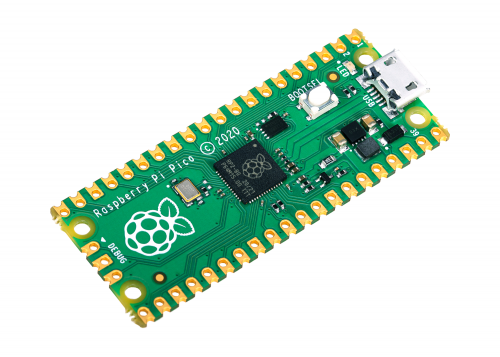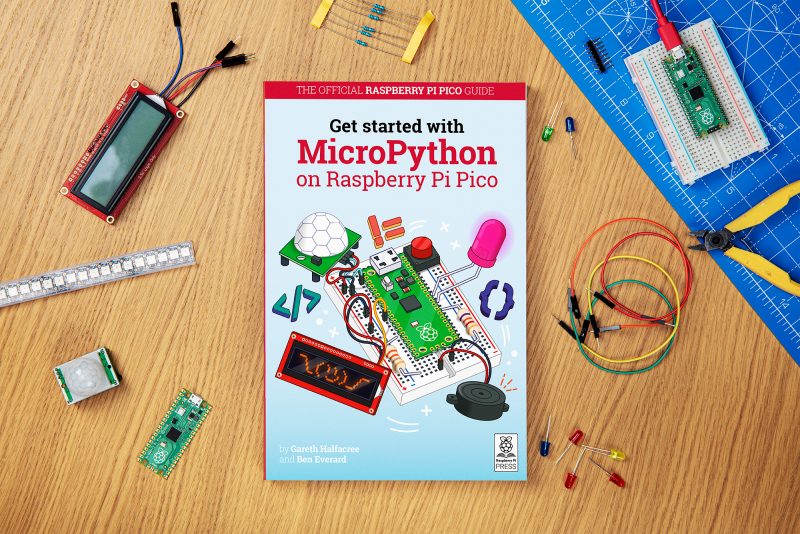Linux
runs the cloud,
the Internet
and
supercomputers. Turns out that Linux could be a very solid choice for your computer as well
regardless of how old it is and learn how Linux is a good fit for anyone,
regardless of their technical skills.
Linux is free
Linux is free. And this is a very important reason to use Linux. As poverty in
the world grows and more and more people use digital devices in emerging
markets, it's important to keep prices low so these folks can also have access
to newer technologies. Prices are very high for
Windows and
impeditive for
Mac for
half the world. Being free allows Linux to reach those markets saving you and/or
your company a lot of money throughout the years.
Linux is more secure
Linux is way more secure than Macs and Windows. That's mainly due to:
-
open-source code: due to its open nature, researches and hackers
frequently inspect and crack the code. When issues are found, they're
reported and fixed by community.
-
open collaboration: open-source code also fosters open
collaborations. Developers from all over the world will frequently push
fixes to the software you use making it better and more secure.
-
enterprise-grade software: tools like
SELinux and
AppArmor that
protect and run on mission critical environments run on your machine too.
-
a different permission model: Linux users run on a low
permission level making it very improbable that even if you're hit by a
virus, you would infect the machine.
-
frequent updates: your system will always be updated getting the
latest security, software and kernel fixes. These are usually the holes
crackers explore to target you.
-
less viruses: yes, Linux has viruses but on an infinite smaller
proportion than Windows users get. Linux also has anti-viruses if you need
too.
-
curated repositories: the easiest way to install software on your
Linux is by using its own repositories. These repositories are curated and
are less prone to have viruses.
Linux will feel familiar
Linux will feel familiar for Windows and Mac users. Most distributions will
either use
GNOME and
KDE, the most popular desktop
environments that will contain applications for everything that you expect: file
managers, contacts, calendars, email, communication tools, etc. For example,
GNOME, the standard for most
distributions looks like this:
While
KDE looks like this:
You'll continue using the tools you love
From super-computers to your machine
You won't lose a thing by using Linux, to the contrary. Linux is the most
powerful system for your computer on the market.
Linux runs the cloud,
the Internet
and
super-computers. For some time already
all of the world's super-computers run Linux, not only because Linux is better (and it is!) but because the engineers can
configure the system as they wish as they have access to the code. Why wouldn't
it run on your computer?
Linux is reliable
Linux rarely (really, rarely!) crashes. Linux is also way more stable than
Windows and Mac. Even the tools you use on those systems are more stable on
Linux.

|
|
Remember this? You'll probably not miss those days
|
Good for old hardware
Linux is also excellent for old hardware as it can be configured with lighter
tools that utilize less resources. Most distributions (such as
Fedora LXDE
shown below) release alternative lightweight versions so you'll just need a
simple install to get these systems optimized for lower-end hardware.
Reliable updates
We've seen a lot of
mistakes recently made by either Microsoft
and
Apple
with their Windows and Mac operating systems. Updates on Linux are not only
reliable but are more frequent than anything you'd get on those systems. Your
system's usually updated once or twice a week, every 6 months for a minor
release and every 2 years for long-term supported releases.
Linux is not complicated
Despite what you saw elsewhere, setting up a Linux system at home is no longer a
complex thing to do. Gone are the days you had to specifically configure your
disk, manage partitions, know networking details or which kernel module you had
to load to make your WIFI card work. Today, it simply works and most of the
tools you'll need are four clicks away.
Linux is not difficult to install
Another misconception is that Linux is difficult to install. Today tools such as
the below guide you trough a visual installation process making everything
simpler:
Linux is beautiful
Linux is beautiful. As we saw, the main distributions today come with
GNOME and
KDE, full-featured desktop
environments that allow you configure everything. But, in case you want to go
the extra mile, you'll also encounter
communities on the internet
dedicated to even more customization.
Installing software is simple
Installing software on Linux is simple. Every Linux distribution provides a tool
to manage software with lots (literally, thousands) of apps. On GNOME, the
Software tool
looks like this:
A huge community to help
Linux users are spread around communities over the internet.
Being on Reddit
or on forums of your specific distribution, you'll end up find a lot of help on
the internet.
Excellent Documentation
You'll realize that the tools you'll use have a lot of documentation. Plus,
there are hundreds of sites you'll be able to use as a reference for your
questions. No access to the internet? Linux ships with the
man tool
providing you fantastic documentation. Just run
man <cmd>
to view documentation for the software you need:
Linux is customizable
Another big advantage of Linux is that it's customizable. I'm not talking about
the wallpaper or desktop theme. I'm talking everything. Here's some of the
things you can change or customize:
-
Desktop Managers: don't like
GNOME or
KDE? There's
XFCE,
LXQT,
LXDE, etc for you.
- Login Managers: how you login to your system.
- Desktop themes: configure themes, colors, etc.
- Fonts: customize your fonts, sizes, etc.
-
Shell: shell is the application that runs on your terminal and also
can be changed or customized.
-
Systems and Services: your system will have an endless list of
services to choose from.
-
Kernel: even the kernel, the main process of your system can be
customized.
Curated repositories
Linux users are used to having repositories curated by the community and
available for them. That means no viruses, adware, unsafe or untrusted software.
Games
Linux run games too! Emulators, custom games and thousands of games are also
available on
Steam for Linux.
PCGamer recently did an
in-depth review and they also concluded that's
surprisingly easy to switch a gaming PC to Linux today. Not only is Linux easier than ever to use, but it's totally viable for
gaming in 2020."
Office Tools
There are many alternatives to Microsoft's Office suite on Linux including
LibreOffice,
OpenOffice,
WPS and
Calligra Suite. You'll
probably not miss Word and Excel.
Frequent Updates
If you're using a major distribution such as Ubuntu, Fedora, etc, you'll
probably get smaller updates everyday or so, minor releases every 6 months and
major releases every 2 years. Your system will be constantly updated. For
reference, the upgrade cadence for Windows and Macs average 4 years.
Awesome Terminal
You can do pretty much everything from the terminal: browse the web, manage your
files, listen to the radio, send a tweet, read
Reddit, watch
YouTube. You can also use
tools such as
tmux and
multitask on the terminal.

|
|
On the left
man git, on the right: vim on top and htop on bottom
|
Linux is everywhere
If you accessed this page, you probably used hundreds of services, tools and
systems running Linux. routers, switches, firewalls, servers, clouds, web
servers,
the internet runs on Linux. Running Linux at home means that you'll won't have many issues running the
latest tools.
Your TV, smartphone, watches, Teslas, IoT devices (fridge, microwave), Raspberry
Pis, nuclear plants and
everything runs on Linux. And the trend is that going forward, more companies will use it into their
products.
Changed the world? Was probably made on Linux
No matter which technology you use, it probably was developed on Linux. Clouds,
web servers, databases, containers, firewalls, VPNs, databases. Most of the
tools that changed the world incubated on the GNU/Linux operating system. Want
to use reliable and cutting-edge technology? Run Linux.
Huge growth
The Linux marketshare just keeps growing.
Today the cloud runs Linux. Learning Linux will get you in touch with the technologies that the world's
using. Today, it's estimated that
the number of developers running Linux
is equal or bigger than MacOS users at 25%.
Linux is fantastic for development
There's a big difference between a developer who knows their tools and a
developer who not only knows their tools but how they work. Using Linux will
expose you to a vast resource of technical information making you know how
things work behind the scenes. Plus, the more confident you get with the
terminal, the less you'll rely on heavier tools such as IDEs making you a much
better and more valuable developer.
Plus, developers love Linux! According to StackOverflow,
Linux is the most loved technology
by developers:
We'll address more how developers can benefit from using Linux in a future post.
You will learn how technology works
Due to the vast documentation available and due to the open-source nature of
the tools you'll use, you have access to an outstanding amount of technical
information on how everything works. That will help you not only learn more
about your tools but also to learn how your computer works.
Perfect for hardware-lovers
Into
IoT, Rasperry Pi,
Arduino? Using this tools
will teach you a lot about Linux itself but also about how your devices
function and how they interact with your system. You'll also have access to a
powerful documentation about how to setup and configure your devices.
Perfect for network engineers
If you want, learning
networking
on Linux is fun and a rewarding experience. As previously said, Linux runs the
Internet today and its robust and reliable networking capabilities are to be
given credit for allowing you to watch Netflix, YouTube or even
FaceTiming Zooming with your friends. Want to work with
networks? Use Linux.
Conclusion
On this post we discussed why use Linux and how you too could benefit from using
it today. We hope you learned something today and are excited to try Linux.
See Also




























